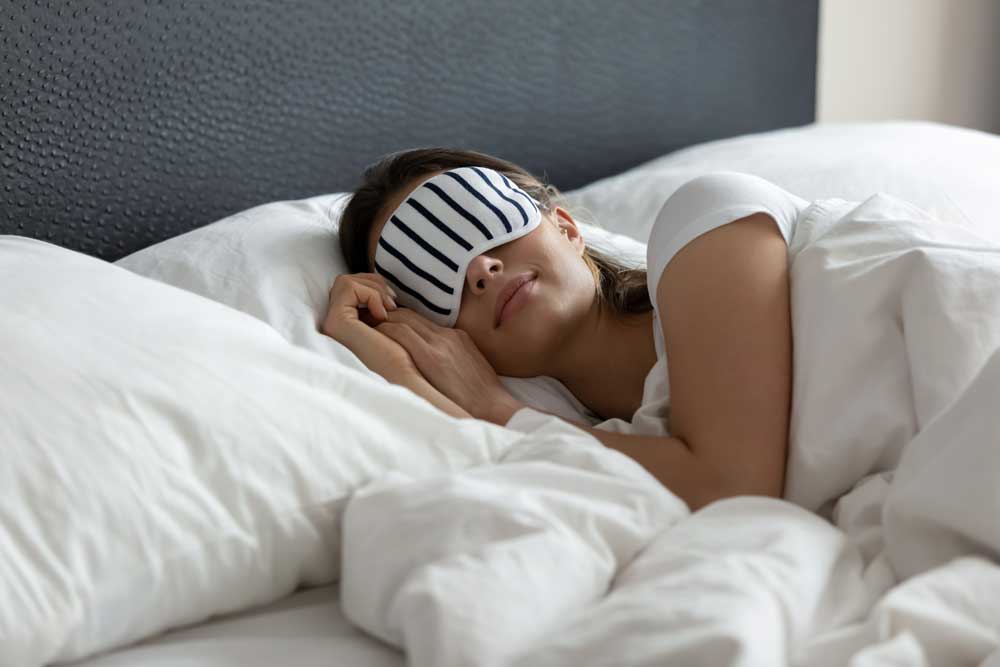Good sleep is one of the most important pillars of overall health and well-being. It affects everything from your mood, energy levels, and mental sharpness to immune function and weight management. Getting adequate, quality sleep allows your body to repair itself, rejuvenate, and be prepared to face the challenges of the day ahead. In fact, research has shown that poor sleep is linked to a number of serious health issues, including heart disease, diabetes, and depression. Understanding how to get good sleep is crucial for leading a healthy and productive life. In this post, we’ll explore 15 tips that will help you sleep better at night, naturally and effectively.
1. How to get Good Sleep: Increase Bright Light Exposure During the Day
One of the easiest and most effective ways to improve sleep is by increasing your exposure to bright light during the day. Your body’s internal clock, or circadian rhythm, is highly influenced by natural light. Bright light exposure in the morning helps set your sleep-wake cycle, making it easier to fall asleep at night. Aim to spend at least 30 minutes outside in natural daylight, especially in the morning. If that’s not possible, you can also use a light therapy box.
2. How to get Good Sleep: Reduce Blue Light Exposure in the Evening
Blue light emitted from screens—like smartphones, tablets, and computers—can interfere with your ability to fall asleep. This is because blue light suppresses melatonin production, the hormone responsible for helping you sleep. To get deeper sleep, limit screen time at least one hour before bed. If you must use screens, consider installing blue light filters or using blue light blocking glasses.
3. How to get Good Sleep: Don’t Consume Caffeine Late in the Day
Caffeine is a well-known stimulant that can keep you awake, so it's best to avoid it during the late afternoon or evening. Even if you don't feel like it's affecting you, caffeine can stay in your system for up to 8 hours, making it harder to fall asleep. Opt for herbal teas like chamomile or decaffeinated beverages in the evening for a better sleep experience.

4. How to get Good Sleep: Reduce Irregular or Long Daytime Naps
While naps can be a great way to recharge, long or irregular naps during the day can negatively affect your ability to fall asleep at night. If you need to nap, keep it short—aim for 20-30 minutes—and make sure to do it earlier in the day to avoid disrupting your nighttime sleep. This will help your body stay on a consistent sleep-wake cycle.
5. How to get Good Sleep: Try to Sleep and Wake at Consistent Times
One of the most effective ways to improve sleep quality is to maintain a consistent sleep schedule. Go to bed and wake up at the same time every day, even on weekends. This routine reinforces your body’s circadian rhythm and helps regulate your internal clock, making it easier to fall asleep and wake up naturally.
6. How to get Good Sleep: Take a Melatonin Supplement
Melatonin is a hormone produced naturally by your body to regulate sleep. If you're struggling to fall asleep or have difficulty adjusting to a new time zone, a melatonin supplement can help. However, it's important to consult a healthcare professional before using melatonin supplements, especially if you're dealing with a long-term sleep issue.

7. How to get Good Sleep: Try Eye Masks
If you're sensitive to light, using an eye mask can be a simple yet effective way to create a dark, soothing environment conducive to sleep. Darkness signals your brain that it's time to wind down, and an eye mask can help block out distracting lights in your room or from outside.
8. How to get Good Sleep: Don’t Drink Alcohol
While alcohol might make you feel sleepy initially, it can interfere with the deeper stages of sleep. Alcohol disrupts REM sleep and can lead to waking up during the night. To improve sleep quality, avoid alcohol at least 3-4 hours before bed.
9. How to get Good Sleep: Get a Comfortable Bed, Mattress, and Pillow
Your bed, mattress, and pillow play a crucial role in the quality of your sleep. Make sure your mattress supports your preferred sleeping position and provides adequate comfort. Investing in a pillow that supports your neck and spine can prevent discomfort and promote better rest. It's also important to keep your bed clean and inviting.
10. How to get Good Sleep: Optimise Your Bedroom Environment
Creating a sleep-friendly environment is key to how to sleep better at night naturally. Keep your bedroom cool, quiet, and dark. The ideal temperature for sleep is between 60-67°F (15-20°C). Consider using blackout curtains or earplugs if you're sensitive to light or noise. You can also experiment with soothing sounds, such as white noise or nature sounds, to help you relax.
11. How to get Good Sleep: Don’t Eat Late in the Evening
Eating large meals or spicy foods late at night can lead to indigestion, acid reflux, or discomfort, making it harder to fall asleep. To improve your sleep quality, try to avoid heavy meals 2-3 hours before bed. If you're hungry, opt for a light snack like a banana or a handful of almonds, which contain sleep-promoting nutrients.
12. How to get Good Sleep: Don’t Drink Any Liquids Before Bed
Consuming liquids late at night can lead to frequent trips to the bathroom, disrupting your sleep. Try to limit your liquid intake in the hour or two leading up to bedtime. This will help prevent waking up during the night to use the bathroom, allowing you to stay in a deeper sleep cycle.
13. How to get Good Sleep: Relax and Clear Your Mind in the Evening
Stress and anxiety are common culprits that can keep you awake at night. To prepare your mind for sleep, practice relaxation techniques such as deep breathing, progressive muscle relaxation, or meditation. Journaling or reading a book can also help clear your mind and make it easier to unwind.
14. How to get Good Sleep: Rule Out a sleep disorder
If you’ve tried all of these tips and still find yourself struggling to sleep, it may be time to rule out a sleep disorder. Conditions like insomnia, sleep apnea, or restless leg syndrome can significantly impact your sleep quality. Consult a healthcare provider if you suspect that a sleep disorder is interfering with your ability to get good sleep.
15. How to get Good Sleep: Exercise Regularly—But Not Before Bed
Regular exercise is known to improve sleep quality, but timing is important. Try to finish any vigorous exercise at least 3-4 hours before bed to avoid stimulating your body too close to sleep time. Gentle exercises like yoga or stretching in the evening can help relax your body and mind, preparing you for a restful night.
Lifestyle Changes to Support Better Sleep
In addition to the tips above, making long-term lifestyle changes can further enhance your sleep quality. For instance, eating a balanced diet rich in fruits, vegetables, whole grains, and lean proteins can support your overall health and sleep. Incorporating regular physical activity, as discussed earlier, can also help regulate your sleep-wake cycle. Additionally, managing stress through mindfulness, relaxation techniques, and even therapy can be invaluable for reducing sleep disturbances caused by anxiety or worry.
Tips on What to Avoid Before Bed and How to Deal with Occasional Insomnia
Before bed, avoid any stimulating activities such as working, watching intense TV shows or movies, or engaging in heated conversations. Also, try not to overthink or worry about your sleep, as this can create anxiety, making it harder to fall asleep. If you experience occasional insomnia, don't stress about it; sometimes the best solution is simply to get out of bed and do a relaxing activity until you feel sleepy.
Conclusion
Good sleep is crucial for your physical and mental health, and with the right strategies, anyone can improve their sleep quality. From creating a comfortable sleeping environment to making lifestyle changes that support healthy sleep, small adjustments can make a significant impact. Implement these tips, and you'll be on your way to waking up refreshed and ready to tackle the day.
FAQs
How can I get to sleep quicker?
To fall asleep quicker, try creating a consistent bedtime routine, avoid caffeine and alcohol before bed, and ensure your bedroom is cool, dark, and quiet. Relaxation techniques like deep breathing or meditation can also help.
How do I get deeper sleep?
To get deeper sleep, focus on improving your sleep environment, avoid light and noise distractions, and make sure you're following a consistent sleep schedule. Regular exercise can also promote deeper sleep.
How to improve sleep quality naturally?
Improving sleep quality naturally involves maintaining a consistent sleep schedule, limiting screen time before bed, managing stress, and ensuring a comfortable sleep environment.
Can stress affect my sleep?
Yes, stress can significantly impact your ability to fall asleep and stay asleep. Incorporating stress management techniques, like yoga, meditation, or deep breathing, can help reduce sleep disruptions caused by anxiety.